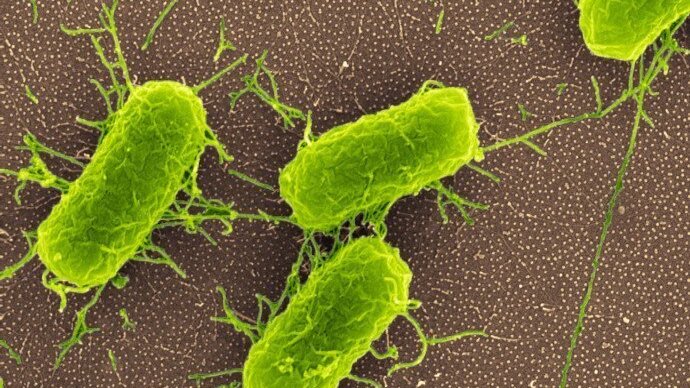
The use of biomaterial implants to treat injured or diseased bone is frequently associated with biomaterials associated infections (BAIs). Such infections are treated with implant replacement by multi-stage surgery and long-time antibiotics, which gets ever more difficult because of increasing antibiotic resistance. Due to the growing number of patients, there is an urgent need to address this challenge. The research idea of the RTG Materials-Microbes-Microenvironments (M-M-M) is to address these challenges by excellence in scientific research in developing a new, tailored antimicrobial materials platform with the prospect for future clinical use. This will be accomplished by six interdisciplinary tandem projects, in which two doctoral researchers (DRs) work on materials science and medical science aspects of these questions, with one materials scientist and one medical scientist acting as team supervisors.
The RTG comprises the following unique points: M-M-M develops an innovative antimicrobial materials platform consisting of different materials systems that integrate: i) tailor-made specific microenvironments and promotion of growth of specific body cells and tissues (e.g., osteoblast cells), ii) non-toxic, physical antimicrobial action principles (e.g., switchable materials surfaces or "sharp" materials edges) and, where possible, iii) the principle of combined action. This materials platform is based on different nanostructured materials (metals, (bio-)polymers, graphene, and ceramics/glass). This will be complemented by advanced microscopy methods that will help to elucidate the complex multifactorial interaction mechanisms of biomaterials, body cells and microbes.
The qualification programme of the RTG aims to train DRs to become excellent experts in antimicrobial biomaterials, integrated in international networks. The curriculum is specially designed to the needs of DRs from different backgrounds working in this interdisciplinary field. It consists of six elements: Interdisciplinary mentoring, complementary basic training, peer teaching and coaching, advanced scientific training, transfer of research results into applications and soft skills training.
Scientific key words
Biomaterials, implants, biomaterials associated infections, antimicrobial biomaterials
Participating Faculties
Faculty of Physics and Astronomy, Faculty of Chemistry and Earth Sciences, Faculty of Medicine
Cooperation Partners
Jena University Hospital, Leibniz Institute for Natural Product Research and Infection Biology (HKI)
Preferred Language
English
Current number of doctoral candidates
12
How can I become a doctoral candidate? What is the method of selection?
The applications received will be pre-selected. Suitable applicants are invited to a recruitment meeting where they can present their scientific work.
Are there fixed dates to apply?
Job advertisement will be published in July/August 2024, employment will start on February 1, 2025.
Are there possibilities to be funded in this programme?
The Research Training Group has doctoral researcher positions funded by the German Research Association.
Interesting for graduates of the following subjects:
Materials science, life science, physics, chemistry
Degree
Dr. rer. nat. / Dr. ing.
Contatct
Prof. Dr. Klaus D. Jandt (Speaker)
Prof. Dr. Bettina Löffler (Co-Speaker)
Dr. Sonja Fey (Coordinator)
Friedrich-Schiller-Universität Jena
Physikalisch-Astronomische Fakultät
Otto Schott Institute of Materials Research
Chair of Material Science
Löbdergraben 32
07743 Jena
Telephone:+49-(0)3641-9-47735
E-Mail: Sonja.Fey@uni-jena.de
Web: https://www.mmm.uni-jena.de/